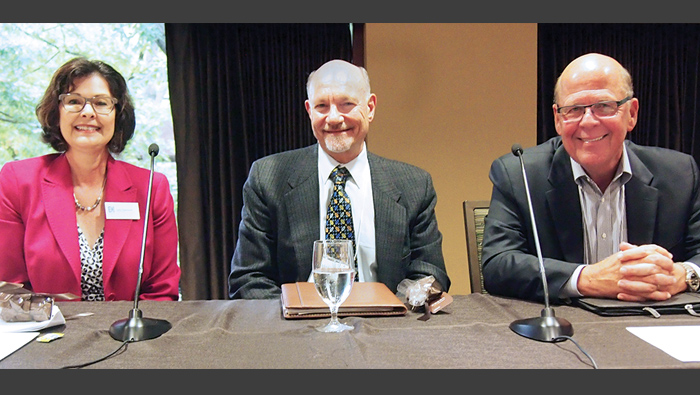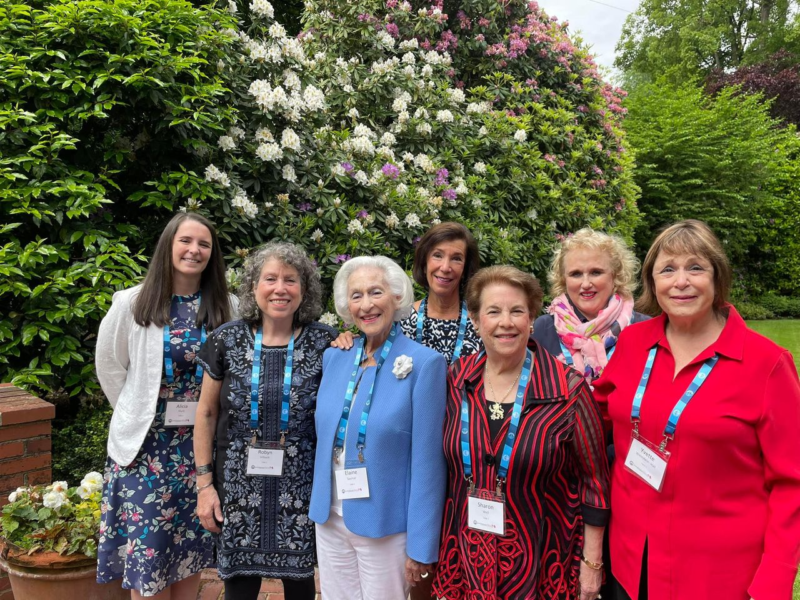
You give generously every year to the nonprofit organizations you love – your synagogue, the Jewish overnight camp you went to as a kid, the day school and your alma mater. You’ve worked hard for decades and are starting to think seriously about retirement. Maybe you’re not sure how you’ll continue to make your charitable gifts once your income is reduced or less certain. If you’re a business owner, here’s a look at one possibility you might not have thought about.
QUESTION: I own my business, and my kids don’t want to get involved. I’m looking for a buyer for the business, but it’s got to be the right person who understands what we do. Once I find that buyer, is there any way that I could donate part of the business for a charitable tax deduction during the transition to new ownership?
ANSWER: Yes, this is something you should consider. In fact, OJCF recently concluded a gift and sale of closely held business shares. It’s an opportunity to have an immediate tax deduction, possibly avoid capital gains taxes and create new charitable resources for your giving. If contributed to a donor-advised fund of a community foundation, like OJCF’s recent gift, you could make advised grants from the fund during your lifetime and even pass that privilege to your children. A significant inflow into this kind of charitable instrument when selling a business could mean you’ll have the resources for all the charitable giving you are accustomed to doing, and perhaps more.
Q: How do I go about investigating that kind of transaction?
A: You’ll want to get guidance from an attorney with experience in this area and a skilled tax advisor. Is your business organized as a C-Corporation or S-Corporation? Or, is it a limited liability partnership (LLP)? Who is involved in changing ownership and what is the process? You should also determine what type of charitable entity would receive the gift – a private foundation, community foundation/supporting organization or public charity. Each has different IRS rules governing charitable tax deductibility, control of the funds, appraisals, business income and so on. You should consult with the charity or foundation you are considering working with, too. It’s an opportunity for you to reflect on how to put your charitable giving to work in the community. The charitable entity will share with you what their process and requirements are for accepting closely held business shares, partnership interests and LLCs. A foundation or charity working in this area should have a written gift acceptance policy. You should review that with the charity’s professional leadership and make sure you’re all working toward the same achievable goals.
Q: This type of gift sounds complicated. Maybe it’s just too much of a hassle. Why bother?
A: It’s worth exploring, and if all the pieces fit together, the outcome can be tremendous. It’s smart business and can be very rewarding, especially for someone with a lifelong commitment to philanthropic giving. Advisors and foundation professionals are accustomed to working as a team for the business owner, examining the business transaction requirements, the IRS issues and tax consequences, and the type and purpose of the charitable gift. It’s like putting a puzzle together and can be really exciting.
Q: What should I look out for?
A: Proper valuation and appraisal of the business is key. You’ll likely be the most knowledgeable about marketability of the business (or partnership interest), but you can’t have a binding pre-arranged sale either, or you’ll lose the tax benefits. At the same time, the foundation or public charity will need to know they can sell the interest in a reasonable time and without undue risk or burden such as a capital call. There are tax regulations governing the deduction (basis versus full fair market value), and you should be concerned about liabilities, pre-arranged sales and qualified appraisals, for example. If details are overlooked or shortcuts are taken, it can turn out poorly for everyone. With proper advice, this kind of gift can go smoothly and have very rewarding benefits for everyone involved.
Julie Diamond is the executive director of the Oregon Jewish Community Foundation.
OJCF does not provide tax or legal advice. Always consult with your personal tax and financial advisors before making significant charitable gifts. ojcf.org





